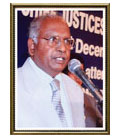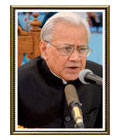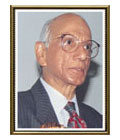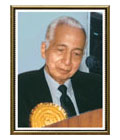 |
India is a peace loving country, believes in international relationship of all kinds. We welcome our guests. India has got a very good judicial system. We have got our finest written constitution.
Some of you all have been coming to India quite often, we would like to welcome you all again and again for attending this conference. |
|
—Hon'ble Mr Justice K. G. Balakrishnan
Chief Justice, Supreme Court of India, Chief Guest of the Conference
at the Civic Reception organized by International Bench and Bar Association at Delhi
Speech dated 7th December 2006
delivered at New Delhi |
| |
|
| |
 |
I would prefer to begin by referring to Article 51 of the Constitution of India. This article articulates the essential link between the national politics and international obligations of the State. There is a direct link between "future" of a nation and the "present" of a child.
It is a wonderful opportunity and thrilling experience to be with you for sharing your vision of future and giving out my thought. I understand that the school, being the world's largest school, is already on the Guinness World Record. I, however, feel that it would be more befitting if it finds its rightful place in the Guinness Book for its outstanding and constant efforts, year after year, to assemble as the largest gathering to awaken the conscience of the mankind to its obligations towards its own future generation. |
|
—Hon'ble Mr Justice V. N. Khare
Former Chief Justice, Supreme Court of India
Speech dated 9th December 2006
delivered at the 7th International Conference of Chief Justices of the World |
| |
|
| |
 |
The fundamental ethic expressed in Article 51 describes a world order based on the principles of international peace and security. From the earliest times, the concept of a world order governed by law and assuring the welfare and happiness of its citizens has, in one form or the other, engaged world leaders and statesmen, jurists and philosophers. Finally, it may be observed that in following the Directive Principles enshrined in Article 51 of the Constitution, India plays a vital role in promoting and strengthening a global order, guided and governed by international law. It is a global order where international peace and security provide the conditions for resolving international problems of an economic, social, cultural, or humanitarian character and for encouraging respect for human rights and for fundamental freedoms for all without distinction as to race, sex, language or religion. International law ceased long ago to be confined to the regulation of relations between states. |
|
—Hon'ble Mr Justice R.S. Pathak
Former Chief Justice, Supreme Court of India; Former Judge, International Court of Justice;
Member Permanent Court of Arbitration (The Hague) &
Hony. Member of the Bench, Gray's Inn, London
Message dated 23rd December 2001
for the 1st International Conference of Chief Justices of the World |
| |
|
| |
 |
What was being doubted five or ten years back has really come true in the sense that we have really become one world, one world by compulsion, one world by clamping of some thing over which you have no control, one world on account of the fact that if you don't do certain things together, humanity is about to perish, the homo sapien race might not be able to live on this planet. Violation of the ecology, the environment is not done within and if it is done in any part of the world it affects the entire globe. Therefore, time has come when we have become global without doing anything ourselves, and time has come when we cannot resist globalisation. It is like a flood which you cannot stop.
If that is operating we can end up as one and we can have one parliament. But as has been rightly pointed out by our speakers the time seems not to have come and it may take some more time to think of World Parliament. |
|
—Hon'ble Mr Justice Ranganath Misra
Former Chief Justice, Supreme Court of India &
Former Chairman of National Human Rights Commission of India &
Former Member Permanent Court of Arbitration, The Hague, Netherlands
Speech dated 25th February 2001
delivered at the Global symposium |
| |
|
|
|



